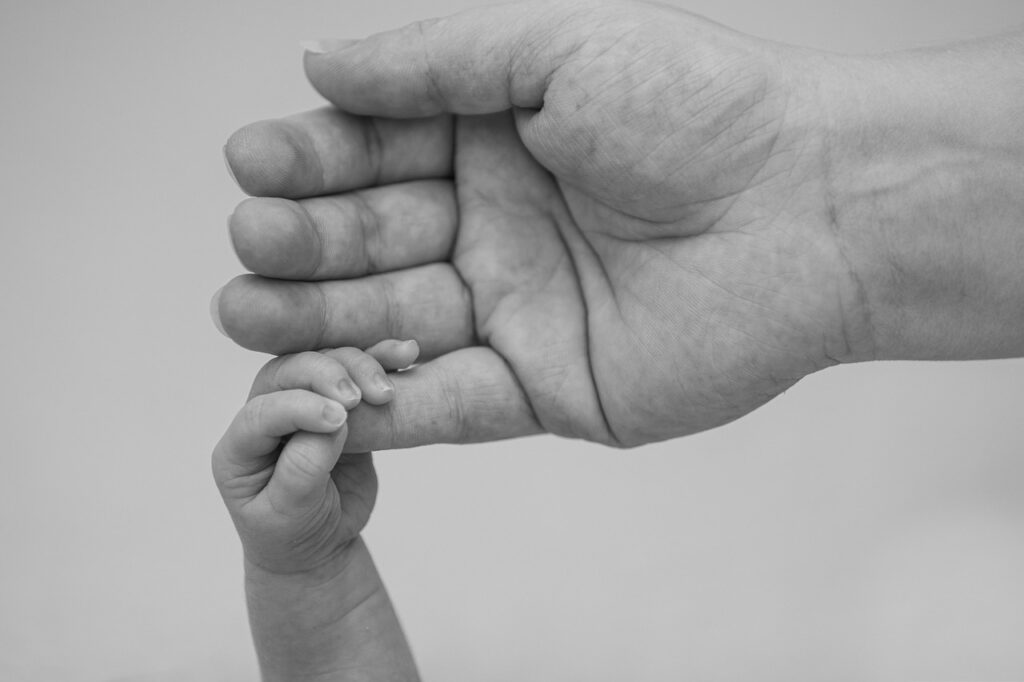
Listening to Grammy award winning Victoria Monet’s new classic, I Put That on my Momma — “On my momma, on my hood, I lookfly, l look good…” Monet sung. I ponder how the prison system is “thirst trapping” [using for attention] precious incarcerated moms. When moms get to prison, we are promised rehabilitation, but prison misuses our natural resources, turning us into “mammies” poised to raise other people’s children.
Barely hanging in there, I’ve seen my own daughter just once in four years. I remember hugging her small frame, easing up just before I squeezed too hard. It was a sunny still day, we did pushups in the small yard outside the visiting area. People smiled, families noticed.
I have been consumed with protecting my daughter from the same abuse I suffered that led to me being behind bars. The system seems to have a cruel taste for the most valuable moms. We make the best peer mentors, facilitators, Inmate Advisors, instructors, and are makeshift moms in a place where makeshift families are built by forced alternative circumstances.
We are overcrowded in eight woman cells. There should only be four beds in a cell. That is the law, but those laws are not enforced so it keeps incarcerated moms crawling over each other.
New recalcitrant’s are forever popping up at our doorsteps — squeezing in. Where particularly B-l-a-c-k moms can’t break free from the bedrocks of slavery, the long arm of the caste system perpetually shatters the “freeworld” family, sending the p-i-e-c-e-s [pieces] to a ecosystem that systematically undermines efforts to get home in time to rebuild a proper family foundation for the children — moms must return home to mom.
Back to Victoria Monet, “I put that on my momma.”
According to Prison Policy Initiative, there are “almost one million” incarcerated girls and women in the U.S. prison system. Also, “an estimated 58% of incarcerated women have minor children.” California incarcerated women historically face a generation gap that since the inception of women’s prisons, has incarcerated the more educated, skilled, talented, resourceful women, calling upon us to mentor, facilitate, correct, and to be surrogate mothers to the recalcitrant undomesticated women prisoners.
A “lifer” [one serving a life sentence] is expected to manage and balance the entire prison ecosystem to make everyone’s life better, at the expense of her own quality of life. At Central California Women’s facility, 10 years is a generation gap; 10 years of vocation, experience, training, teaching, working, also actualizes a woman in her rehabilitation process. Lifers are the most valuable commodities in the prison.
In November 2023, CCWF recorded: 180 women who served 20-25 years, 160 served 15+ years, 200 served 10+ years, and 2,000+ women served less than 10 years. Over the past few decades, the rate of incarceration for women is twice the rate for men.
Widely known research says serving beyond 10 years becomes harmful, setting in regression, burnout, and vulnerability to write ups, loss of family (death) and support, skills and job opportunities expiring and becoming outdated.
All the more reason incarcerated women demand viable paths to freedom through mandatory resentencing of the “California Model” for women — like myself — who’ve served more than 10 years.
One evening, I found myself standing in the middle of the bright day room just behind rows of women leaning in — hanging on every word emitting from a Twilight movie.
Women shuffled around using the night to productively hustle. A mom, a few years my senior, stood in front of me with heavy eyes lamenting, “you taught me how to keep a good room, and I’ve been teaching other women, but I’m tired now TJ. I can’t do it anymore. These women are coming in here lazy. I work, go to school, I’m too tired to keep teaching them.” I understood.
Our conversation commingled with sentiments I heard in a PBS documentary featuring one of my heroes, Fanie Lou Hamer, a Civil Rights advocate, reverberating in the back of my mind.
“We are tired… we are sick and tired…we are tired of many things… we go on because it’s not right here,” said Hamer, about the prejudice she fought against in Mississippi.
Well here in CCWF, we are older, we are moms, we know and we understand now. We are sick and tired of being away from our children. The “California Model” women were reared by moms who taught us better. We are educated, smart, valued, highly skilled, trained, fly, and “hood”; we got it from our mommas. And now it’s time to get back home to be mothers to our own children. I put that on my momma. —
The editorial was provide by Empowerment Avenue and was edited by SQNews for length and clarity.